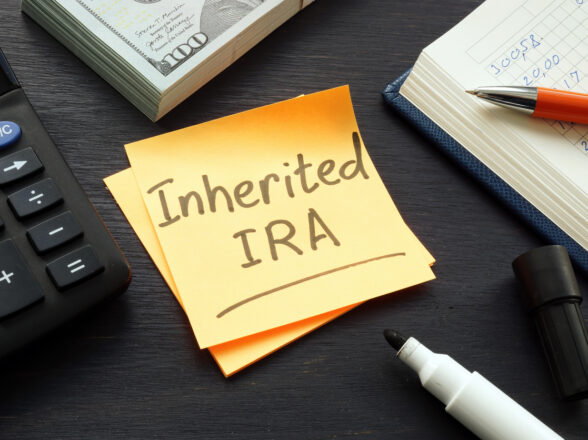Blog
How to Manage A Stock Windfall

According to a recent report by Cerulli Associates, a vast transfer of wealth is poised to occur in the US over the next 25 years. Approximately $68 trillion will change hands with the nations aging population transferring assets to charitable endeavors and their immediate heirs.
AudioBoost-Elektro Dreams Crack
While “wealth” may look different to each individual, a sudden influx of assets will automatically impact your life and goals.
Maybe you win a lottery or receive a handsome inheritance. You become an 8-figure social media influencer or hold a substantial stock position that takes off. However, one of the most common financial windfall occurrences is realizing significant gains via equity stock awards.
Getting your financial plan right isn’t easy when you suddenly become a multi-millionaire. 70% of individuals who experience sudden wealth get broke within a few years, according to the National Endowment for Financial Education. Even when their resources last a lifetime, it’s rare for the sudden amount of money to go beyond a few generations.
Several reasons contribute to this: a lack of financial planning or acumen, pressure to deliver financial assistance to family and friends, or simply failure through unsustainable spending.
Overall, having a solid financial plan and working with trusted financial advisors to guide and oversee how you implement your financial plan can help you identify and accomplish long-term goals while recognizing and managing unnecessary risks.
Equity Compensation Windfalls
The primary forms of stock equity compensation that often create a sudden windfall wealth event are restricted stock and stock options.
These equity compensation forms have specific planning considerations, potential pitfalls and benefits. It’s crucial to consider your risk tolerance and exposure to company stock while staying vigilant of broader tax and planning consequences that affect your tax situation not just short-term but for several years to come.
Stock awards are often an integral part of an equity compensation package, and when things look good for your company, they can appreciate by increasing your total income.
However, stock awards can be complex and solving this can be a critical solution to maximizing your income. So you need to understand various aspects of your stock to ensure you are making the most of them.
Essentially, when managing equity stock compensation, it’s crucial to create a plan for the long term while keeping in mind your estate and family plan considerations. And due to the complexity of stock plans and tax rules, it’s important to work with experts. You should work with a skilled team of professionals to help you check the potential effects of exercising stock grants in ten years and how it aligns with your overall financial plan.
Understanding Your Stock Windfall
There are two crucial factors regarding stock awards windfalls: when the stock vests and how they are taxed.
While stock windfalls can add a substantial surplus to your account, you must sufficiently plan for your tax responsibilities to get the most out of the opportunity, without which you may not be prepared when it’s time. Or you could end up giving more than adequate to the government.
Anything that increases your vesting schedule or results in an increased share price can cause a windfall. Increased vesting is common when companies complete an IPO or are acquired. Company management may also accelerate vesting if equity compensation becomes a problem. Regarding an increase in share price, acquisition or merger announcements often boost prices.
Regardless of the windfall event, a financial plan can help maximize your financial value.
Tips to Manage a Stock Windfall
Windfall wealth can lead to bad decisions— if you aren’t careful. Here’s what you need to know to manage stock windfalls:
Understand your vesting schedule to gain access to the potential value of vested awards
Both stock options and restricted stock are granted to you as the recipient, but you won’t get immediate access to the value of your stock until they vest. Your stock vesting schedule will determine what you can do with your stock and when you owe taxes.
While every vesting schedule varies, in any case, the schedule spells out when you can exercise the awards or when the stock becomes accessible. They typically happen over 3 to 4 years on a schedule determined by your company.
Stock options are often more volatile compared to other equity compensation forms, are sensitive to price changes, and need you to choose the right vesting time. When restricted stock vests, it changes into shares of company stock.
Some awards are restricted to a lock-up time that limits stock sales for a specific period after public exposure of the company. This period is a perfect opportunity for planning and framing a strategy for when the lock-up period ends. Companies often experience high volatility after trading begins, and individuals subject to lock-up periods may witness the stock price hit record levels.
Understand the volatility of the stock market
If you have received any form of equity awards, understanding the plan rules of your company and knowing when to exercise stock options and sell your underlying shares can be valuable to grab an opportunity to sell some company stock.
Once you consider whether or not you are comfortable with your company’s stock exposure, how concerned you are about the volatility of stocks and what you want your wealth to do, it’s crucial to plan long-term and think about financial strategies to secure your potential wealth. You should also understand your risk tolerances and avoid or mitigate unnecessary risks.
Note that the concentration of an asset can open your windfall wealth to risk. This is particularly true for company stock, where the same company may be tied to deferred compensation, salary, investments and benefits.
Utilize incentive stock options and alternative minimum tax (AMTs)
There are no taxes withheld when a recipient exercises incentive stock options. Your actions after the exercise determine the tax outcome, which could range from ordinary income if shares are sold immediately or within a period of disqualifying disposition to possible AMT in the exercise year and considerations of capital gains if you hold the shares until a sale is considered a disqualifying disposition.
Consider long-term financial goals for your legacy and family
Most wealthy individuals want to broadly deliver financial assistance to their families while minimizing the effect of taxes. Some create particular ideas, such as providing education expenses to their children or grandkids, while some want to focus on a charitable legacy.
You should begin by identifying your specific concerns and goals when creating a plan focusing on how best to achieve the goals and reduce risks. With a large windfall, take time and consider:
- What do you hope to achieve short term?
- Any family or financial situations you expect to encourage long-term?
- Your desired retirement strategy or lifestyle?
- How much continuous financial support do you plan to offer your family?
If you get a significant windfall, it’s easy to worry about the wealth being misused by your beneficiaries. To solve these concerns, leverage an attorney to develop trust to protect beneficiaries from unnecessary risks associated with family irresponsibility or beneficiaries losing inheritances in a divorce situation or generally to financial creditors and predators.
Individuals comfortable with personal financial footing from a huge windfall may consider transferring some assets to loved ones. The amount of federal lifetime gift, as well as estate tax exemption, is currently historically high, $11.7 million per individual, subject to future changes. Besides, while some states create separate state estate taxes, few have gift taxes.
This environment can be ideal for several high-net-worth families to implement various gifting plans, potentially creating a legacy for generations and benefiting from the current amount of estate tax exclusion.
Include tax-smart strategies
Some options are designed to potentially lower the tax impact of your awards windfall. Company stocks held within your workplace saving plan or your 401(k), together with a strategy referred to as net unrealized appreciation (NUA), can allow you adequately pay reduced rates for your capital gains on a portion of your tax-deferred assets rather than paying the typically higher ordinary income rates. That’s why it’s essential to talk to your tax advisor to help you understand what works for your situation.
Consider the potential tax effect on your family’s next generation and plan early to utilize complex structures such as grantor retained annuity trusts (GRATs) created to shift future appreciation of assets for your heirs.
Some assets also have a potential for huge appreciation and may have associated limitations on transferability; hence gifting may not always be favorable.
If you are charitable, think about donating long-term appreciated securities as it can help lower capital gains taxes and offer a tax deduction to offset income for shares vesting that year. And to make these donations efficient, you may consider large donations in months or years when your tax bracket is higher to receive an even greater deduction.
Summary
Windfalls impact people in various ways, both psychologically and financially. And if this article has piqued your interest and curiosity in equity compensation planning and stock windfall wealth—good! Stock windfalls are exciting but need planning and proper management to get the most value possible.
Some windfall recipients pay off mortgages, debts and school loans. Others invest in expensive home renovations or buy a new home. Still, others provide significant financial assistance to family, friends and charities. Every recipient is different, so please be in touch and we will be happy to help you in the quest to optimize the outcomes when you get a financial windfall.





































































































































